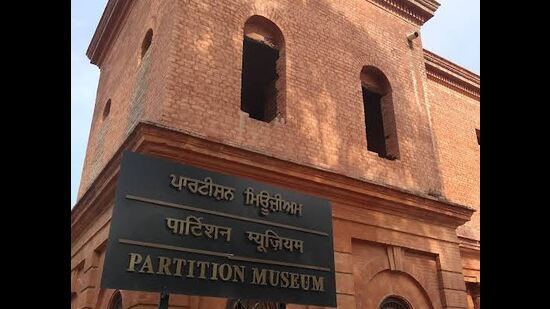“It is important to join the many that desire for mankind never to forget now and in the future, what took place.” This poignant quote associated with the Holocaust resonates deeply when we consider two of the most devastating tragedies of the 20th century: The Holocaust and the Partition of India. Both events, occurring within a few years of each other, resulted in unimaginable suffering, mass displacement, and millions of lives lost. Yet, the way these tragedies are remembered and memorialised differs significantly.

The Holocaust is extensively documented and memorialised. Holocaust museums exist worldwide, with the United States Holocaust Memorial Museum in Washington DC and Yad Vashem in Jerusalem being among the most prominent. These institutions serve not only as repositories of historical artefacts and testimonies but also as powerful educational tools, ensuring that the Holocaust’s horrors are never forgotten.
In stark contrast, the Partition of India, which resulted in the displacement of approximately 20 million people and the deaths of 1-2 million, lacks a comparable level of documentation and memorialisation. Despite Partition’s massive scale and lasting impact on the Indian subcontinent, there is no State-sponsored museum dedicated to preserving its memory. The sole notable attempt, a private museum in Amritsar, India, while commendable, falls short of capturing the full scope of this monumental event.
This disparity in memorialisation raises critical questions about historical memory and its importance. Why is it crucial to remember the horrors of Partition with the same intensity as we remember the Holocaust?
Firstly, memorialisation serves as a powerful tool for education and prevention. By documenting and presenting the events of the Partition, we can help future generations understand the devastating consequences of religious and ethnic divisions. The formation of nations based on religious identity, as seen in the creation of Pakistan and, later, Bangladesh, has led to ongoing conflicts and instabilities. A comprehensive Partition museum could serve as a stark reminder of the perils of such divisive ideologies.
Secondly, remembering the Partition is crucial for healing and reconciliation. Many survivors and their descendants still bear the trauma of this event. Acknowledging their experiences through official memorialisation can provide a sense of validation and closure, potentially easing long-standing tensions between communities.
Thirdly, a detailed record of the Partition is essential for historical accuracy and understanding. The lack of a comprehensive archive means that many personal stories and crucial details are being lost as generations pass. This gap in our historical knowledge not only does a disservice to those who lived through the Partition but also limits our ability to learn from this pivotal moment in history.
Lastly, comparing the memorialisation of the Holocaust and the Partition highlights the often uneven approach to historical memory on a global scale. While the Holocaust’s impact on western consciousness has been profound and enduring, events of similar magnitude in other parts of the world have not received the same level of attention. This discrepancy calls for a more balanced approach to preserving global historical memory.
The present government has begun to take steps towards remembering and acknowledging the horrors of Partition. This shift is a significant departure from previous administrations that often opted to downplay or avoid the topic, fearing it might reopen old wounds. However, this new stance recognises a crucial truth: Confronting painful history, rather than suppressing it, is essential for genuine healing and progress. The notion that remembering Partition will only cause further harm is being challenged by the understanding that history, when properly addressed, provides an opportunity to learn, reconcile, and move forward.
Countries worldwide have demonstrated that facing historical traumas head-on allows societies to make peace with their past. Attempting to mask unpleasant truths with half-truths or selective narratives ultimately proves counterproductive. Like a festering wound covered by a bandage, the pain and consequences of Partition cannot be truly addressed until they are exposed to the light of honest examination and discussion. By bringing these experiences into the open, India is taking a crucial step towards not only honouring the experiences of those who lived through Partition but also equipping new generations with the knowledge to prevent such tragedies in the future.
This approach acknowledges that while remembering can be painful, it is a necessary part of the healing process. By creating spaces for dialogue, commemoration, and education about Partition, India is paving the way for a more nuanced understanding of its past and a more informed approach to its future. This willingness to confront difficult history head-on is a sign of a maturing democracy.
While the Holocaust and the Partition of India were distinct events with their own unique contexts, both represent grave human suffering in the 20th century.
The comprehensive memorialisation of the Holocaust serves as a model for how we might approach the remembrance of the Partition. By creating spaces for education, reflection, and reconciliation, we can ensure that the lessons of these tragedies are not lost to time.
Anurag Punetha is a broadcast media professional, and media head, IGNCA.The views expressed are personal


